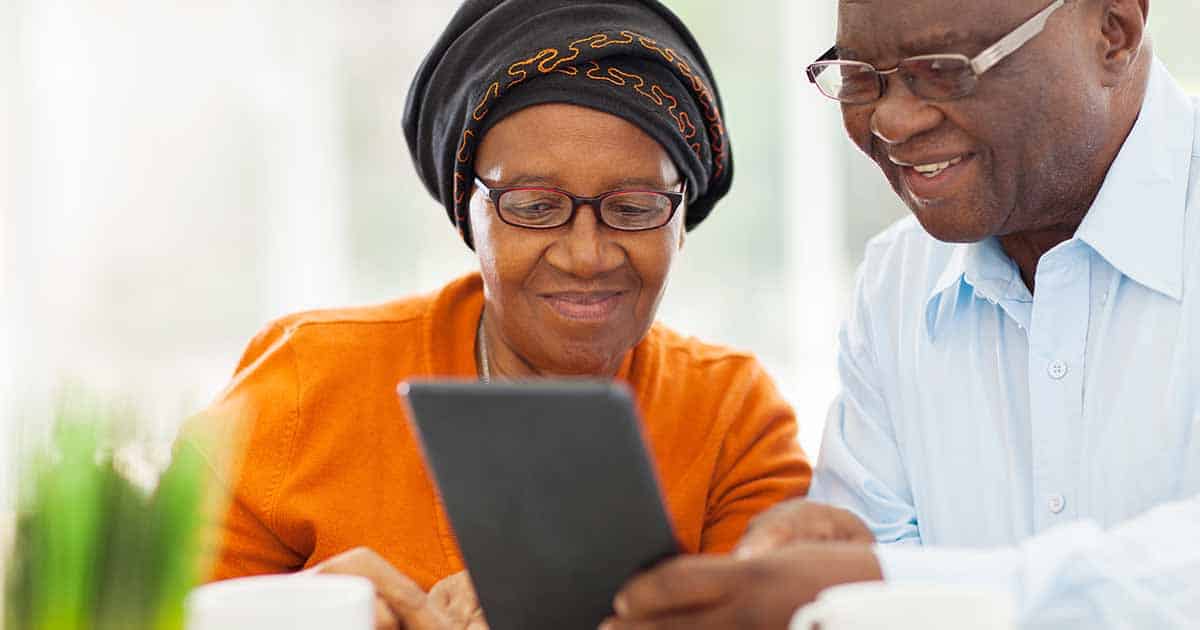
How attitudes towards care tech have changed in lockdown
The lockdown restrictions in place since March 2020 have stopped families being able to hug, visit or touch one another, however thanks to the benefits of technology, this hasn’t stopped the world from connecting.
Bringing people together
For people who suddenly found themselves having to isolate, the instant lack of physical contact and friendly interactions is likely to have been a difficult hurdle to face. And particularly for those over 70, who are typically less familiar with using technology to keep in touch with loved ones and friends, there were widespread fears about the loneliness that the vulnerable groups in our society would encounter.
However, new research has found that technology use amongst this group is on the up, and reducing the impacts of isolation.
A survey conducted by Home Instead Senior Care of 2,000 UK adults found that more than half of those aged 65-plus feel closer to their families, with some saying they have been more in contact with loved ones than they were pre-lockdown.
By using social media and video calling on smartphones and tablets, this older generation is feeling more connected than ever before. Agnes Boyd who has been alone and self-isolating since late February explained how Home Instead’s GrandPad has helped her keep in touch with family from across the Irish Sea: “I contacted Home Instead and they have set me up with a GrandPad and a special phone so that I can speak to my niece in Ireland over a video phone call every week, which brings me much joy.”
Families have also been able to check on the care their loved ones have been receiving through online platforms, such as Unique IQ’s Client & Family Portal. Being able to check medication has been taken correctly and meals have been prepared offers relief to loved ones when they cannot visit themselves.
Technology’s diverse uses
As well as connecting families, the older generation have also been using technology to help them continue living independently throughout lockdown.
According to the TSA, there are already 1.7 million people in the UK relying on some form of telecare, helping them to remain in their own homes. But every day smartphones and tablets have become an increasingly important part of the mix for maintaining independence.
Tasks such as online shopping, ordering prescriptions and seeking medical advice have seen a surge in popularity during lockdown, with online grocery shopping seeing the biggest change. Consumer knowledge website, Kantar, reports that over 65s’ online purchases went up over 94% this April, compared to the same time last year.
Research conducted by NHS Digital reports 38% of people have increased their use of NHS technology since the start of the coronavirus outbreak. The NHS website received over 61 million visits in March, with a massive 3.4 million hits in one day as the virus hit its peak. And the NHS app saw a rise in downloads by 111% between February and March, with repeat prescription requests via the app going up by 97%.
For those who aren’t as ‘tech-savvy’ the leading charity for older people, AgeUK, offers advice for both the older generation and families on how to make the most of using technology and the internet. When lockdown isn’t in place, they also have a Digital Buddy scheme where volunteers help older people in their community understand technology, including basic digital skills and internet browsing.
As we move forward into June and the lockdown begins to ease, there is no expectation to see this new approach to technology decline as people use the opportunity to connect on a stronger and more convenient level. As Martin Jones, of Home Instead Senior Care UK commented: “It’s really encouraging to see people of all ages embracing technology as it’s likely to remain a focal point post-pandemic.”
For more information about Unique IQ’s technology that’s specifically designed for home care, please visit www.uniqueiq.co.uk.